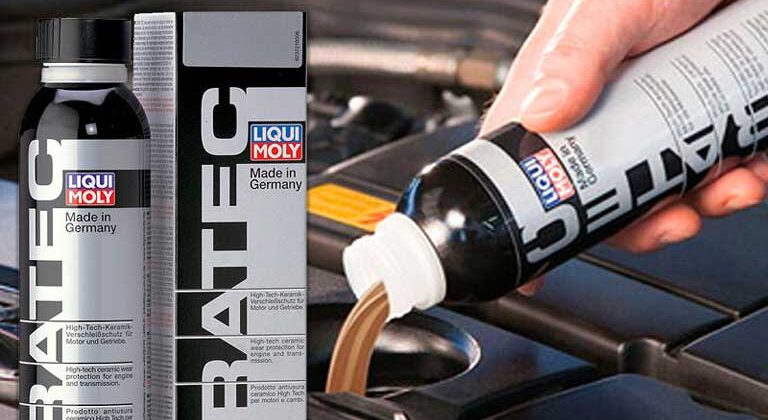
It is widely accepted that the engine is the most important element of a car. And that the key to getting the most out of your car is treating the engine well.
If you’re one of those who always look for ways to improve the performance of their vehicles or keep the car in a good condition , you must have heard about engine oil additives.
What are Engine Oil Additives?
Oil additives are chemical compounds added to a base oil during manufacturing or through aftermarket oil supplements. Different oil additives can be selected to enhance the desirable properties of a particular oil for specific applications.
In their simple form, motor oils cannot effectively fulfill all that they are meant to do. To increase their properties, additives are added. Additives improve the properties of motor oil.
Generally, motor oil already included some additives added by the manufacturer. Additives are meant for specific purposes. Some are to increase the lubricating properties of the engine. Some can stop leaking in older engines while some are meant to reduce corrosion.
The need for Oil Additives
The debate that whether aftermarket motor oil additives are necessary at all doesn’t look to be going away anytime soon.
Many automotive enthusiasts believe that everything a car engine needs has already been included in the premium motor oils.
Others would ask if off-the-shelf additives don’t work, what then brought about the notable boost in performance they noticed after adding the additives?
To put this in a clearer perspective, let’s look at what motor oil does.
Other than lubricating the engine to reduce friction among the moving components, motor oil also does many other things.
Good motor oil should minimize sludge buildups, prevent corrosion and cool the engine through heat transfer. Motor oils, in their basic form, cannot do these on their own.
This is why additives are added to motor oil to improve its performance.
Oil additives are chemicals formulated to enhance specific properties of motor oils. Commercial motor oils already contained a significant volume of additives. Off-the-shelf options are also available in huge numbers.
The need for more volume of additives gets bigger as the engine ages.
This is one reason many people argue that oil additives are not necessary: it’s hard to notice any difference in performance in new cars.
The engine and it’s components are new and the 15 to 30% additives already included in premium motor oils are adequate.
Where the effect of an oil additive is felt most is in older engines. A good additive can restore some functions of the old engine to an earlier state.
Do aftermarket oil additives work at all?
With increasing numbers of people not believing in off-the-shelf aftermarket additives, it is good to consider some things before you commit your time and money.
As earlier pointed out in this post, additives are chemical compounds added to motor oil to improve their performance.
That additives work is not up for debate. They work. The motor oil in your car engine already contains some additives.
The point of contention has always been whether the aftermarket oil additive brands that have flooded everywhere do work.
Here again, we would say they work. Thousands can testify to their effectiveness.
But in using these, you must be extra cautious. The oil additive market is filled with products with dubious claims. And many will do more harm than good to car engines.
Oil Additives True Benefits or Placebo – question yourself
As an example, let’s say Liqui Moly Ceratec has been marketed as a good additive but in fact is doing nothing good or wrong to your engine. That means that Liqui Moly is lying to you and other buyers.
And if is lying, that means their lying also about their synthetic oil and all other products.
So, their oil is bad? I don’t think so.
Do they need to sell an additive for a few bucks risking their own reputation? I think not.
So,we’re back at square one. Same for all big brands at least.
If oil additives don’t work, most brands are lying to you. But the same brands sell synthetic oil and other oil products. So, why would they lie?
So, even if the oil additive doesn’t seems to do nothing to your new car, it can do some magic and prolong engine life on older high mileage cars.
As there is also a competition in every market, oil producers need to cut costs and that’s why they produce cheaper engine oils that could not contain every needed additive for all type of issues. Couldn’t be possible and would be very expensive. So, they sell oil additives separately with every type being suitable for a specific car problem. That’s a more real statement, don’t you think?
Can oil additives damage my car?
That’s a very good question. To answer the question briefly, we would say yes. Many people have destroyed their engines by using additives.
There are things to consider before using a motor oil additive.
Putting additive in your car engine can have an adverse effect on the performance of your car. Not all engines are created the same way.
Some car engines, due to their make-up and design, can only accommodate a particular type of additive.
That is why when adding any kind of oil additive to cars, especially newer cars, it is better to check out the manufacturer’s recommendation.
You may also want to go through our buying guide here for help. Don’t raise your expectation unnecessarily.
What problems are you looking for additives for? is it leak? is it noise from the engine when it’s running? Or is it injection stiction issues?
Isolating the issue will go a long way in helping you choose the perfect oil additive. You can then check if your vehicle manufacturer has any support for this particular issue.
For example, the HEUI injector issues common with Ford engines can be resolved with the XL-3 Friction Modifier mentioned earlier in this post. Many Ford owners reported that using other popular aftermarket additives didn’t resolve this specific issue. So, the car manufacturer’s recommendation is paramount when selecting an oil additive to use.
How do you add oil additives?
You may see some people opening the engine compartment and just pouring whatever additive they want to use. This is not advisable. And you will not get the full benefits in that way.
Off-the-shelf oil aftermarket oil additives are typically added during an oil change. But make sure you always follow the instruction on the package.
But if you don’t have a knack for DIY projects, you can always consult a mechanic.
Top Benefits of Oil Additives
Over time, using motor oil that lacks important additives can cause increased wear and tear on your engine.
It may result in poor fuel economy, rust and corrosion, oil sludge, overheating, breakdowns and other serious engine damage. Aftermarket oil additives can improve oil performance between oil changes and protect your engine in the long run.
Oil additives that have detergent characteristics are also good for cleaning the engine. This would be helpful to unclog impurities that are stuck between the engine parts, reducing the extreme friction.
A good additive will stop excessive smoke. The oil additive acts by reducing the engine oil loss that causes excess smoke to blow out of your exhaust pipe.
Popular types of oil additives
ANTIOXIDANTS
Oxidation causes engine parts to deteriorate when exposed to oxygen. Hence, antioxidant oil additives do the exact opposite by acting like a protective layer to slow down the oxidation process and prevent corrosion of the engine parts. Also, such types of oil additives are capable of prolonging the lifespan of the engine oil.
VISCOSITY MODIFIERS
Often regarded as the best engine additive, viscosity modifiers improve an oil’s viscosity index. As oil is heated and cooled in an engine, its viscosity changes. An oi’s viscosity index indicates how much the viscosity changes. If a motor oil fluctuates significantly in viscosity, it will become too thin at high temperatures and too thick to flow properly in the cold. Viscosity modifiers maintain the viscosity of your motor oil within an acceptable range no matter what temperature it is outside.
DETERGENTS
Detergents perform two functions. They help to keep hot metal components free of deposits (clean) and neutralize acids that form in the oil.
RUST INHIBITORS
Corrosion or rust inhibiting additives retard the oxidation of metals inside an engine.
ANTI-WEAR AGENTS
These additives are typically used to protect machine parts from wear and loss of metal during boundary lubrication conditions. They are polar additives that attach to frictional metal surfaces.
They react chemically with the metal surfaces when metal-to-metal contact occurs in conditions of mixed and boundary lubrication.
With hundreds of products to be chosen from, that can turn to a bit of hard work.
But we have your back.
This post reviews the top engine oil additives and guides you in deciding the best one for your car.
Good Oil Additives – our choices
Sea Foam sf16
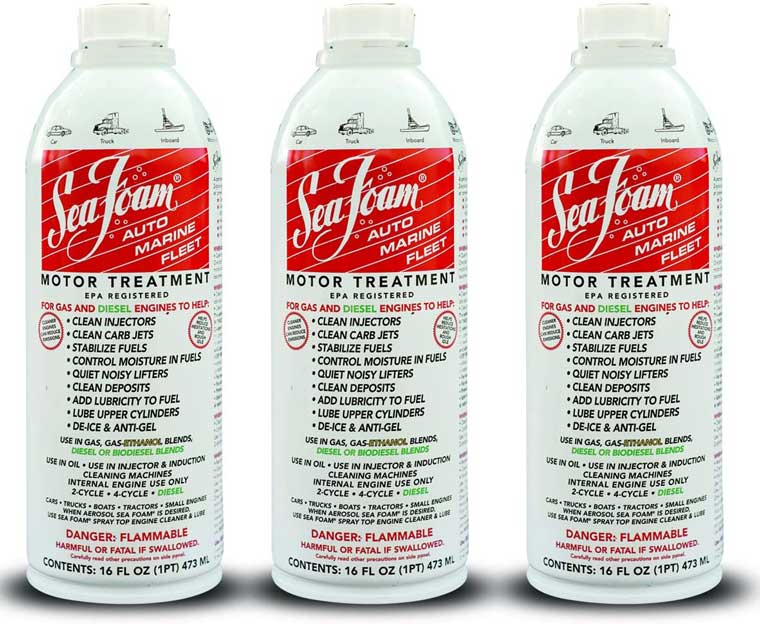
If a product first formulated in 1942 is still constantly rated among the best year in year out, that tells you something about its quality.
The Sea Foam sf16 is the number one choice among experienced mechanics when it comes to upgrading your engine. You can’t use this product without seeing an immediate positive effect on your engine one way or the other.
Motor oil deposits in the engine do have a negative impact on your car’s speed. The sf16 will dissolve all forms of oil deposits in your car engine to help switch it back to its optimal speed.
It’s only a few products that will clean your engine like the Seafoam sf16. And you know the interesting thing, the majority of issues of older engines are down to inadequate lubrication and dirt.
So with this product, you can say bye to common issues like rough idle and bad start. And in the long run, you will see a big drop in the rate of gas consumption.
Archoil AR9100 Friction Modifier
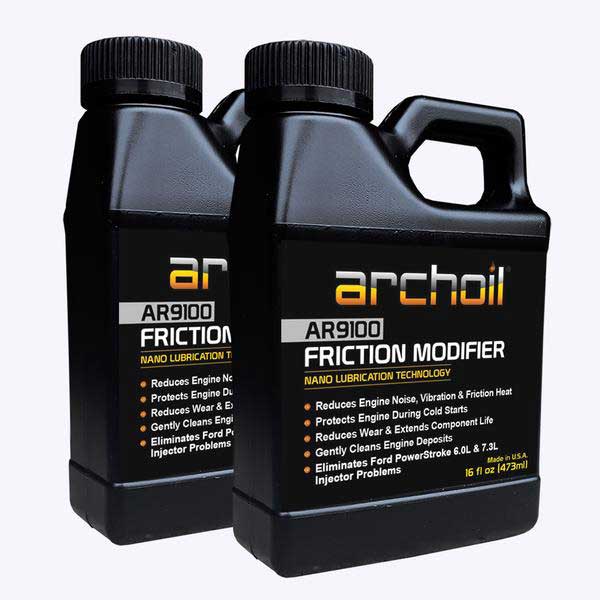
Do you experience increasing noise in your diesel engine? Many a time, noise in the engine compartment is often brought about by friction and vibration.
If regular visits to the mechanic don’t seem to be working to eliminate the sounds, then we can recommend you a simple hack that seems to be working for many diesel engine owners. Get the Archoil AR9100 Friction Modifier.
The AR9100 Friction Modifier is designed for both diesel and gasoline engines. But it is diesel engine owners that will feel its positive impact the most.
The AR9100 does more than reduces friction. Its prolonged use will gradually disperse all forms of deposits – sludge, varnish and carbon.
These elements are known to make the engine work well below their optimal performance.
The Archoil additive increases the time you need to wait before an oil drain. Since unchanged oil can slowly become acidic, the AR9100 prevents this by increasing the motor oil TBN. It also works well for hydraulics and power steering systems, and gearboxes
And if you have the 6.0L or 7.3L Power Strokes, the AR9100 motor oil additive is a godsend. It will remove the frustrating hard start issues usually caused by the HEUI injector misfiring.
Overall, the Archoil AR9100 is a powerful upgrade to your engine. And whether you use it in a diesel or gas engine, you will be rewarded with improved performance.
Liqui Moly Cera Tec Friction Modifier
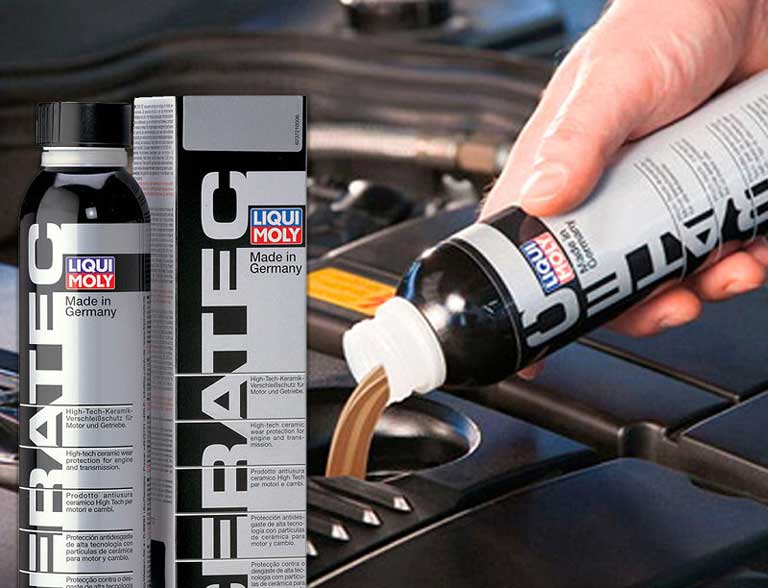
If you have different ranges and types of vehicles and you’re looking to upgrade these, you will be better off with a product that can work across different systems.
The Liqui Moly Cera Tec Friction Modifier is a perfect answer to this scenario. It works well with any commercial motor oil. And not only that, the Cera Tec is compatible with all major vehicle filter system.
There are different causes of noise in the engine for most cars. But a major cause is friction. Friction between the moving parts in the engine. Friction between the pistons, balls, bearings, joints, etc.
The Cera Tec reduces friction and the resulting wear by using a unique technology of ceramic compounds. These minimize direct contact of the moving metal parts. The resultant effect is seen in reduced fuel consumption in both diesel and gas engines. The self-mixing anti-wear oil also works well for compressors, pumps and transmissions.
The Germans have been known for their efficient products and that is brought to bear on this oil supplement.
The only downside? It’s not to be used with wet clutches.
Lucas Heavy Duty Oil Stabilizer
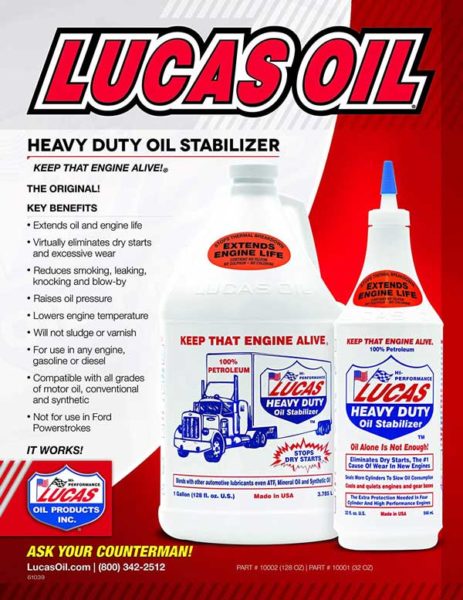
The truth is, most car owners don’t want to change the oil every couple of months. We always wish we could still get more out of the motor oil. And for those of us that do this without fail, it’s only because necessity demands.
Some of us always dream we could have cars that don’t need a regular oil change. And if you have an older car model, the issue takes a new dimension. You not only have to force yourself to change your oil, but you also have to do it at a shorter interval.
Lucas Heavy Duty Oil Stabilizer to the rescue. It prolongs your car engine oil life and drastically reduces how your engine consumes oil.
The first area you will first notice its efficiency is the elimination of the dry starts and those annoying ticking noises emanating from the engine. And if your old engine has been spewing oil, this Heavy Duty Oil Stabilizer will also fix that.
Genuine Ford Fluid XL-3 Friction Modifier
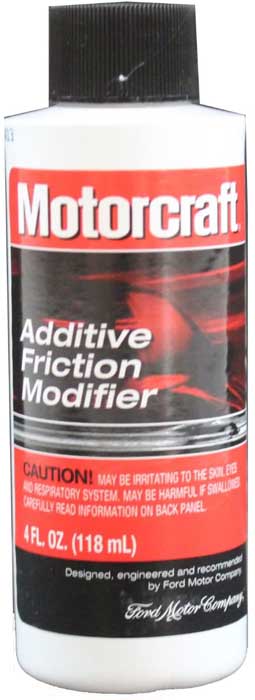
This is one product Ford owners cannot afford to not have.
If you have ever used a Ford you will know that Ford engines have their unique friction and noise issues. It won’t take you long to notice that other famed solutions that work easily with other models may not even leave a scratch on the surface of your car engine.
A unique problem needs a unique solution. The answer to your Ford engine shuddering, chatter and hypoid gear noise due to differentials do not lie in an expensive garage servicing as many have found out.
All it needs may not be more than a bottle of Genuine Ford Fluid XL-3 Friction Modifier. It is also an excellent injector lubricator.
Please note that a strong unpleasant odor that may take several days to go away usually emanates from this product. It is advisable to add the additive in the open air. Make sure you get rid of any wipe or rag used in the process.
Red Line Break-In Oil Additive
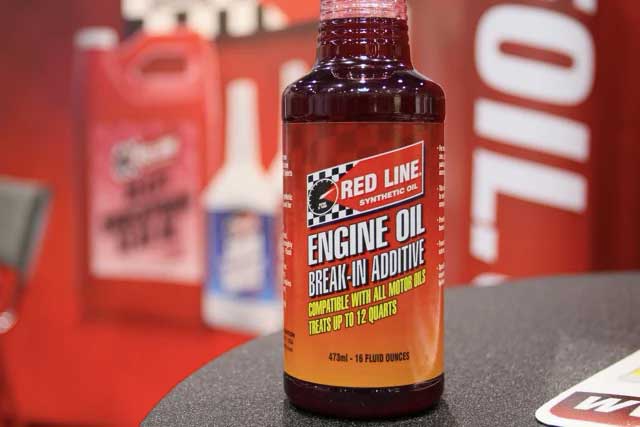
Another very good additive though some automotive enthusiasts may not love it due to high levels of zinc and phosphorus. Too much of these elements have been established to have a slow harmful effect on the smooth running of your car engine.
But with Red Line oil, you only need not worry. Use as prescribed and you are good to go. Your car will ‘thank you for it’ with clearly improved performance.
BG MOA Oil Supplement
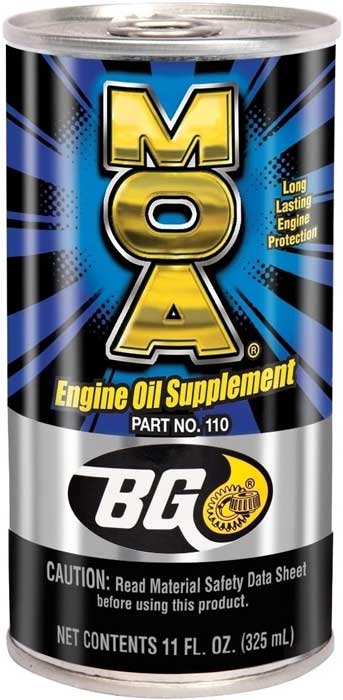
If you have a heavy-duty truck and the motor oil additives we’ve reviewed in this post don’t seem to appeal to you since they are more suited to cars and SUVs, then here is something for you – the MOA Oil Supplement from BG.
It takes a while to see any difference but it will surely come. Some say it’s the second start after the oil change. Some say it is the third. But it will come. A major difference you will see is in the form of smoother transitions.
Another difference this product makes is in reducing sediment deposits and resisting corrosion. And you can expect an increase in the life expectancy of your motor oil.
A note of caution: use this with great care. This additive appears on the list of products known to contain chemicals that have been said to have a hand in cancer and reproductive health issues.
Rev X Fix Oil Treatment
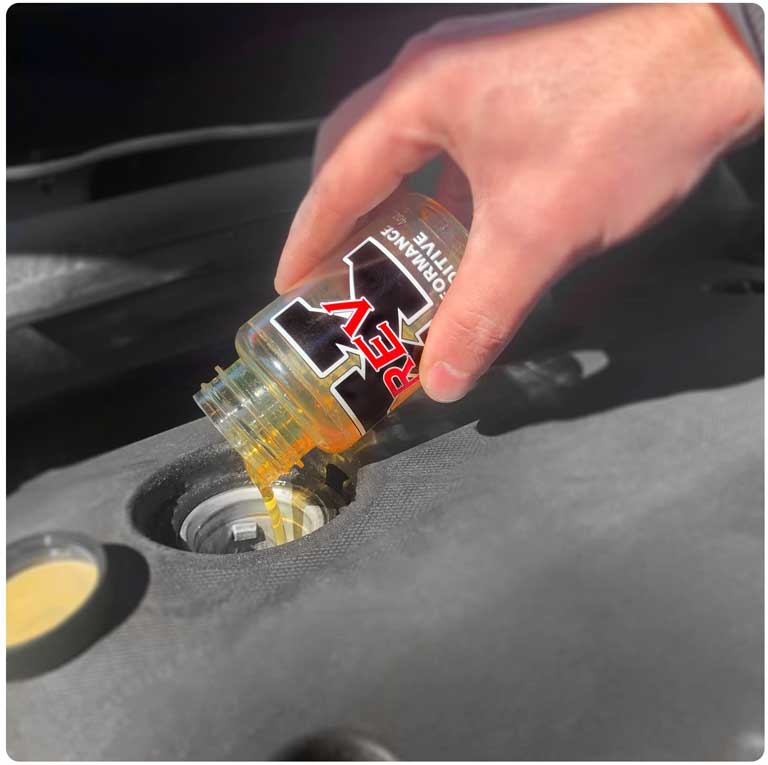
Many car engines are sensitive to the chemicals used in some oil additives for vehicles. That’s why many people will complain that they started noticing other issues in their engines after adding additives.
The solution is to look for an additive that doesn’t use chemical strippers in its composition. They come no better than the Rev X Fix Oil Treatment. This high-performance oil additive is unrivaled when it comes to stuck fuel injectors.
Rev X is famous for its simple-formula engine products that do not include corrosive chemicals found in many other oil treatments which usually do more harm than good for vehicle engines.
Designed for both gas and diesel engines, the Fix Oil Treatment quiets engine noise and removes deposits and sludge.
Its friction-reducing compounds will also extend the time you have between oil change whether you’re using synthetic or mineral-based oil.
Lucas Oil Stop Leak
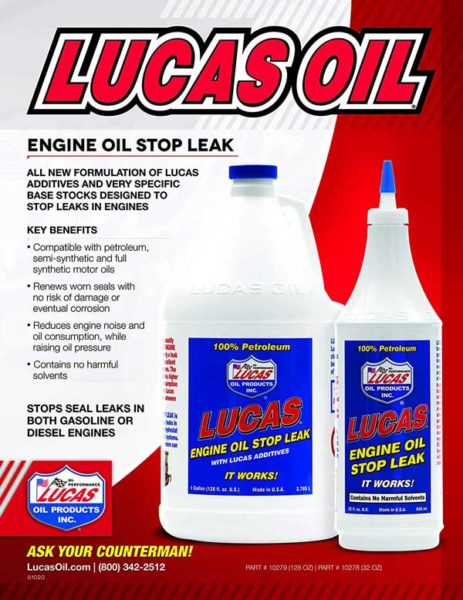
You know that sinking feeling when you noticed oil drops in a place you just moved away your vehicle? It happens to the best of us.
For major leaks, a visit to the mechanic will be necessary, but for less severe leaks, you only need a good additive like the Lucas Oil Stop Leak
Another good product without harmful solvents, the Stop Leak works well with most oil types. It repairs your engine worn-out seals and gives them a new life so you can enjoy leak-free rides for months or years, depending on how bad the leak has become. That’s why products like this are perfect when you first notice the leak.
BestLine Premium Synthetic Oil Treatment
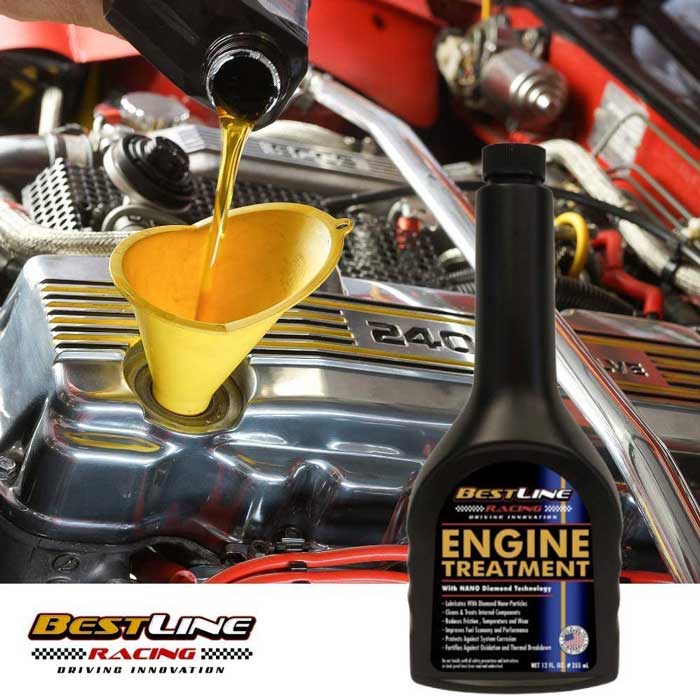
One thing with wear and tear in the engine is that the vehicle uses more fuel. So, any oil additives that reduce friction will also boost the fuel economy of the engine.
With the BestLine Oil Treatment, you can expect up to 50% mileage increase on the same quantity of fuel you’ve been buying.This synthetic additive with its nano-diamond lubricating technology will protect your car engine against corrosion.
It also cleans and treats other internal components and strengthens the engine against oxidation, a bane of older engines.
Leave a Reply